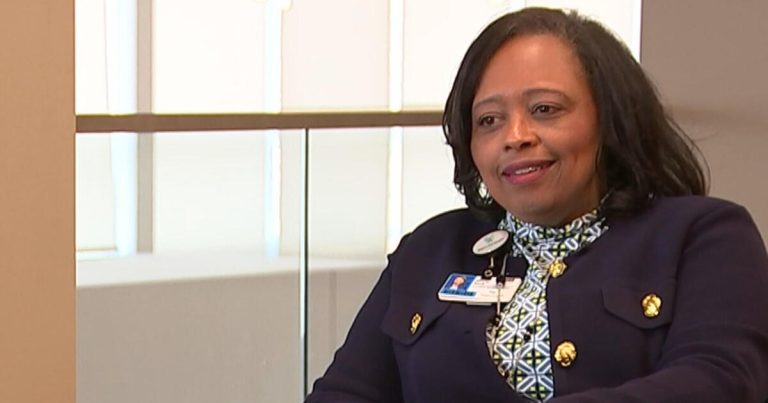

Inspire, a home school charter network that once served tens of thousands of students statewide, for years lacked records to justify its claims for state funding and tens of millions of dollars in transactions among its schools and related organizations, a new state audit found.
The Inspire network, which included two schools authorized out of San Diego County, also overreported student attendance and, as a result, collected about $609,000 more in public money than it was supposed to, according to the audit, which scrutinized the network’s activities from 2017 to 2020.
The audit’s findings suggest that Inspire’s lapses resulted in part from some of the same financial practices and weaknesses in oversight that have allowed other California charter school operators to get more taxpayer money than they were entitled to — including the A3 charter school leaders who were indicted four years ago after fraudulently obtaining $400 million from the state.
At the heart of many of Inspire’s issues, according to the audit and past reporting by The San Diego Union-Tribune, was a charter management organization that operated outside of the public eye and wielded control over virtually all aspects of the schools’ operations and finances. That control, auditors found, extended to the point that it was moving money between the schools and some outside entities — and even moving students and staff between schools — without the individual schools’ knowledge or approval.
Auditors said the Inspire charter management organization either lost or destroyed many required records and supporting documentation needed to justify its financial transactions and how it claimed student attendance, which is the basis for how the state allocates funding to schools. Inspire kept records in such poor condition that it could not reconcile many transactions, to the point it could be considered negligence, auditors added.
“When you have a lack of records, unreliable records, all those things, that sends up lots of red flags,” said Michael Fine, the CEO of the Fiscal Crisis Management and Assistance Team, the state’s education auditing agency that conducted the review of Inspire.
Auditors said they were not able to conclude whether fraud may have occurred, largely because Inspire’s records were in such poor condition.
They also couldn’t get enough information because the person who was central to the Inspire network and responsible for much of its decision-making, founder and former CEO Herbert “Nick” Nichols, did not participate in the audit.
Staff at the individual schools cooperated, but they were of limited help because their parent corporation had withheld so many records from them, Fine said.
“Adequately reviewing and resolving allegations regarding audits of this type is often difficult when the quality of the record-keeping, accounting practices and oversight by a sole member (charter management organization) is significantly poor,” auditors wrote. “This type of situation also provides more opportunities for fraud and can lead to the appearance of fraud when none has occurred.”
The audit’s findings “should be of great concern” to the Inspire schools, their authorizers and their county offices of education, and they “require immediate intervention to limit the risk of fraud, mismanagement and/or misappropriation of assets,” auditors wrote.
Auditors recommended that state schools Superintendent Tony Thurmond use their findings to recover state funding that some Inspire schools shouldn’t have received and give funding to other Inspire schools that had been underfunded based on the incorrect attendance reporting.
Each of the eight county superintendents who requested the audit must present the report’s findings, along with their recommendations, to the board of each charter school in their county that was part of the Inspire network, according to state law.
After that, each charter school will have 15 days to tell the county superintendent what steps it will take in response.
‘In the rear view’
While the audit has relevance and policy implications for California, Fine said, the report may be less relevant to the Inspire schools themselves because they no longer exist as a network.
The schools cut ties with the Inspire charter management organization years ago, and the network has since broken up. The charter management organization, a nonprofit corporation that used to be called Inspire District Office and later Provenance, had shut down as of last year, according to its tax filings.
The leaders of the two Inspire schools authorized in San Diego County, Cabrillo Point Academy and Pacific Coast Academy, said the problems identified in the audit were with their former charter management organization, not their own schools. They said they have been working with state auditors and their authorizer, Dehesa School District, in recent years to address the issues that auditors raised.
“We very much believe these issues are in the rear view for the current school,” Cabrillo Point Academy Executive Director Jenna Lorge said in an email.
The superintendent of Dehesa, a small East County district that as an authorizer is charged with oversight of its charter schools, said in an email that “there were no major surprises in the report as many of the concerns raised previously were with the previous charter management organization.” Dehesa has also since beefed up oversight of its five charter schools and implemented an in-depth annual oversight process.
But it’s unclear if money owed to Inspire schools by the former leader of Provenance has been fully repaid.
Nichols, the charter management organization’s former CEO, resigned in October 2019, when county officials were starting to ask for a state audit. By that time, all the Inspire schools had met and taken a vote of no confidence in him, according to the audit report, and Provenance was intending to fire him, according to his separation agreement.
As part of that agreement, by December 2020 Nichols was required to repay, with interest, $1.1 million in payroll advances that he had taken from multiple Inspire schools and Provenance.
As of January 2020, Nichols still had $840,000 in principal to repay. But Fine said he doesn’t know if Nichols ever repaid all of it, or if the schools he was borrowing from have received all the money due.
Nichols did not respond to requests for comment for this story.
Missing records, byzantine spending
The state audit began months after the Union-Tribune reported in 2019 on the Inspire network’s financial and organizational practices, which included high-interest borrowing and inter-borrowing among Inspire schools and other affiliated entities. The Inspire schools, which Nichols founded, were paying 15 percent of their revenue to Provenance, which Nichols also led.
The Inspire network grew rapidly in enrollment. Part of Inspire’s draw was that it gave students thousands of dollars a year to purchase activities such as horseback riding lessons and dinner theater performances under the guise of enrichment and education; after the Union-Tribune’s reporting, Inspire restricted what families could buy with school enrichment funds.
By February 2020 eight county superintendents, including San Diego County’s, had asked the state to audit the Inspire network. They cited concerns about attendance reporting irregularities, enrichment funds practices, manipulation of student enrollment and revenue across its schools and affiliated corporations, and interrelated transactions and conflicts of interest among Inspire executive officers and directors, among other things.
The superintendents said they were concerned that Inspire’s activities could be similar to those of the A3 charter network.
The state auditing agency studied Inspire’s activities from only 2017 to 2020 because that was the scope that the eight superintendents had requested almost four years ago. Eight of Inspire’s 15 schools were audited.
A number of factors delayed the audit, including the pandemic, travel restrictions, Inspire staffing shortages and scheduling conflicts, auditors said.
But chief among them was the fact that Inspire’s records were so inconsistent and incomplete that they were unreliable.
Auditors said Inspire’s charter management organization failed to provide records or supporting documentation for any of the school years studied to justify its reporting of student attendance. Individual Inspire schools’ attendance reports did not match up with the reports that the charter management organization was sending to the state to claim public funding, the audit found.
Provenance was not reconciling transfers or borrowing between the schools and affiliated organizations, so it was impossible to know how much a school was truly owed, auditors said. In one year, half of the transfer balances among Inspire entities did not match up with each other, and accounts in the Inspire network could have been out of balance by as much as $1 million, auditors found.
For $37.5 million worth of transactions made by Inspire entities — more than half of the transaction dollars that auditors reviewed — auditors found significant problems. Some transactions were missing supporting documentation; for others, the educational purpose could not be identified. In some cases, Provenance had failed to notify a school of a transaction involving its own money.
“A Inspire charter school that had no relationship, interest, or anything to do with an expenditure may have paid for the expenses or purchases of any entity throughout the Inspire network,” auditors wrote.
The summer session problem
One of the biggest problems auditors found, Fine said, was that Inspire was collecting additional state funding through a summer school program, which state law does not allow.
Inspire was using a multi-track calendar system, serving students on different calendar tracks during the same school year. Inspire offered a summer program at some schools through a Track A program that began in July, according to the audit.
State law allows schools to run multiple tracks, but only if each track serves students for 175 days, the length of a full school year.
Inspire was enrolling students in Track A for only the summer, at most eight weeks, auditors said. And it geared the summer program primarily toward students who were attending other district or charter schools, so students were simultaneously enrolled at their regular schools and in Inspire schools through the summer program, Fine said.
Some school district authorizers had even asked their own charter schools to provide a summer-only program for their district students because those districts couldn’t offer their own, Inspire staff told auditors.
While California taxpayers were already paying for a full school year’s worth of education for those students at their regular schools, they were also paying extra money for students enrolled in Inspire’s summer school, Fine said.
Staff at the individual Inspire schools told auditors that the intent of the summer program was not to profit off the state. The Inspire parent organization “may have misunderstood the issue” of receiving attendance funding for summer-only programs, auditors said.
This misuse of the multi-track system isn’t unique to Inspire. Fine said he has seen this happen with schools multiple times before, and it’s one of the same techniques that A3 charter school leaders exploited to get more state funding than they were allowed.
Inspire managers canceled their Track A summer program after the A3 indictment, according to the audit.
‘Tightened up’ transparency
The audit’s findings also highlight transparency issues with charter management organizations, Fine said.
Provenance hid records and information from the schools, so the schools didn’t know what the corporation was doing with their own money and the schools’ boards weren’t making their own decisions, according to the audit.
“You can’t use a related third-party organization to hide your records … in essence, that’s probably what they were doing,” Fine said.
The relationship between the Inspire corporation and the Inspire schools was not unique, either. Multiple California charter school networks have similar arrangements, where the schools pay a chunk of their revenue to a separate corporation, which in turn provides virtually all of the schools’ operations such as curriculum, financial management, enrollment services and more.
Under a 2019 state statute, charter management organizations are subject to transparency laws, including the Brown Act and the Public Records Act, just as school districts and charter schools are.
Yet such organizations frequently refuse to disclose their records, arguing they are contracted vendors, not charter management organizations — even though they handle much of the schools’ operations and essentially all of their revenue is public funding through the charter schools. Provenance had previously denied public record requests by the Union-Tribune using this claim.
Fine said oversight officials need to make sure they are enforcing transparency laws on third-party charter management organizations.
“The structure that we have that allows the charter management organizations, and all of that, probably needs to be tightened up a little bit,” Fine said.
The issue of oversight
Oversight of charter schools is largely supposed to come from their authorizer, usually a school district or county office of education, which approves a charter school’s opening and renewals.
Oversight is also supposed to come from hired auditors — every year, school districts and charters must get an audit of their finances and attendance accounting.
But A3 and Inspire highlighted ways in which those checks can fail.
Many charter authorizers are tiny, rural school districts that don’t dedicate much time or resources to oversight. These small districts also have a financial incentive to authorize and keep more charter schools, because they receive oversight fees from these schools.
And because schools hire their own auditors, they can simply replace an auditor if they don’t like its findings.
It’s the responsibility of charter authorizers, auditors and county offices of education to certify that schools’ attendance reporting is in compliance, Fine said. He said misuse of a multi-track system is “a very simple thing to detect” and that existing layers of oversight should catch it.
“But when each party in those layers fails — when the charter authority fails to provide adequate oversight, when the independent auditor fails to do their job accurately, when county superintendents on the (attendance) issue just sign off without any due diligence — that lack of follow-through destroys those layers of protection for the taxpayers,” Fine said.
The San Diego County Office of Education does not review schools’ attendance reporting by calendar track, said county Deputy Superintendent Michael Simonson.
“That’s a conversation we also need to have with the districts about what information they could or should be requesting from the charters to verify,” he said.
On Friday, the county superintendent recommended to Cabrillo Point Academy that it work with an auditor to see about submitting a corrected attendance report for past years, ensure its internal controls and record-keeping practices are solid and review its Track A attendance reports. Simonson will present about the audit to Pacific Coast Academy at its board meeting Thursday.
Dehesa School District, which authorizes Cabrillo Point Academy and Pacific Coast Academy and used to authorize A3 schools, began conducting annual oversight reviews of its charter schools in 2019.
It contracts with the Small School Districts’ Association to produce an annual oversight report, hundreds of pages long, of its five charter schools that checks the schools’ governance, educational program, finances, operations and more.
Dehesa Superintendent Bradley Johnson, who has helped spearhead these new oversight efforts, took the helm of the district in 2020 after former leader Nancy Hauer was indicted in the A3 case.
“It is one of the most comprehensive reviews a district has implemented since A3 and beyond what the state mandates,” Johnson said of his district’s oversight in an email.





